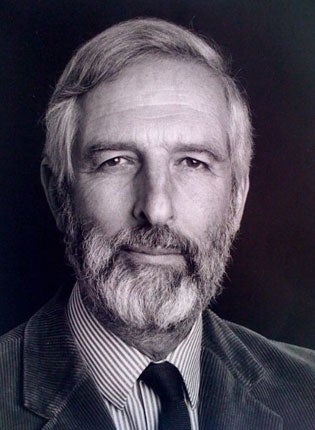Professor William Birch: Geographer and academic who championed the polytechnic ideal

Your support helps us to tell the story
From reproductive rights to climate change to Big Tech, The Independent is on the ground when the story is developing. Whether it's investigating the financials of Elon Musk's pro-Trump PAC or producing our latest documentary, 'The A Word', which shines a light on the American women fighting for reproductive rights, we know how important it is to parse out the facts from the messaging.
At such a critical moment in US history, we need reporters on the ground. Your donation allows us to keep sending journalists to speak to both sides of the story.
The Independent is trusted by Americans across the entire political spectrum. And unlike many other quality news outlets, we choose not to lock Americans out of our reporting and analysis with paywalls. We believe quality journalism should be available to everyone, paid for by those who can afford it.
Your support makes all the difference.William Birch, who died on 12 June, had a distinguished career in two capacities, first as a geographer and secondly as an academic leader in higher education.
Born in Crowthorne, Berkshire, in 1925, William Birch volunteered for the RNVR and from 1943-46 served as an officer on patrols guarding the Western Approaches in the Second World War. His first academic post was as lecturer in the Department of Geography at the University of Bristol. In 1960 he went to the US to work in the Graduate School of Geography in Clark University, Worcester, Massachusetts and in 1963 became Professor and Chairman of the Department of Geography at the University of Toronto, Canada.
In 1967 he returned to the United Kingdom to become Professor and Head of the Department of Geography at the University of Leeds. He was Vice-Chairman of the Social Science Research Council's Geography and Planning Committee, and president of the Institute of Geographers in 1976-77.
In 1975, William Birch was appointed Director of Bristol Polytechnic, not long after its foundation. His decision to move into the public sector of higher education from an assured position in academic life was not taken lightly. He was a convert to the polytechnic ideal and an advocate of polytechnics being accorded university status. Active in the Committee of Directors of Polytechnics, he served as vice-chairman and later as chairman.
One of his first tasks at Bristol Polytechnic was to organise the merger of the two Colleges of Education with the Polytechnic. He carried this out with a courtesy and consideration not altogether typical of the wave of mergers at that time. Other tasks included the need to shift the institution to an increasingly graduate culture, developing a research ethos while giving reality to the concept of a polytechnic as an institution serving the needs of industry, commerce and the professions, and addressing the question of what forms of education most appropriately equip students for future employment. All this formed a large agenda and one which Birch pursued with vigour and great success.
Nor could the effort be concentrated solely internally, for the impact of political decisions had a marked effect upon the institution's life and work. Birch did more than his fair share in the national arena as Chairman of the Committee of Directors of Polytechnics 1982-1984. In 1982 he was appointed to the National Advisory Body for Local Authority Higher Education. There were many frustrations in the role and when he was unable to persuade the National Advisory Body to adopt a transbinary policy for funding higher education he resigned, to a mixture of praise and criticism. This was a brave decision and eventually his ideas were accepted.
He was a rather shy and modest person who did not care for public acclaim and maintained that he had been fortunate in finding himself in posts which offered exciting opportunities. However the opportunities are only of value to those with the ability to see and to seize them. His quiet dignity was a great asset to Bristol Polytechnic.
Much sought after when he retired in 1986, he became a visiting Professor at the University of London's Institute of Education and later at Bristol University. His final publication, The Challenge to Higher Education reconciling responsibilities to scholarship and to society, summed up his philosophy and provided the basis of a number of lecture tours all over the world. A full career makes demands on time and energy, but William Birch had many other interests, most notably a life-long love of sailing. He was a devoted family man and always involved his wife Mary in social aspects of Bristol Polytechnic, where her warmth, charm and vitality were immensely valued by his colleagues. In retirement he participated in community action projects and discovered a talent for hand-built pottery.
In recognition of Birch's contribution to Bristol Polytechnic, he was awarded an honorary degree of Doctor of Letters, in June 1990. He is survived by his wife Mary, two children, Anna and Jonathan, and grandchildren, Jessica and Marina.
Trevor Green
Professor William Birch, geographer: born Crowthorne, Berkshire 24 November 1925; married 1950 Mary Birch (two children); died Bristol 12 June 2009 .
Join our commenting forum
Join thought-provoking conversations, follow other Independent readers and see their replies
Comments